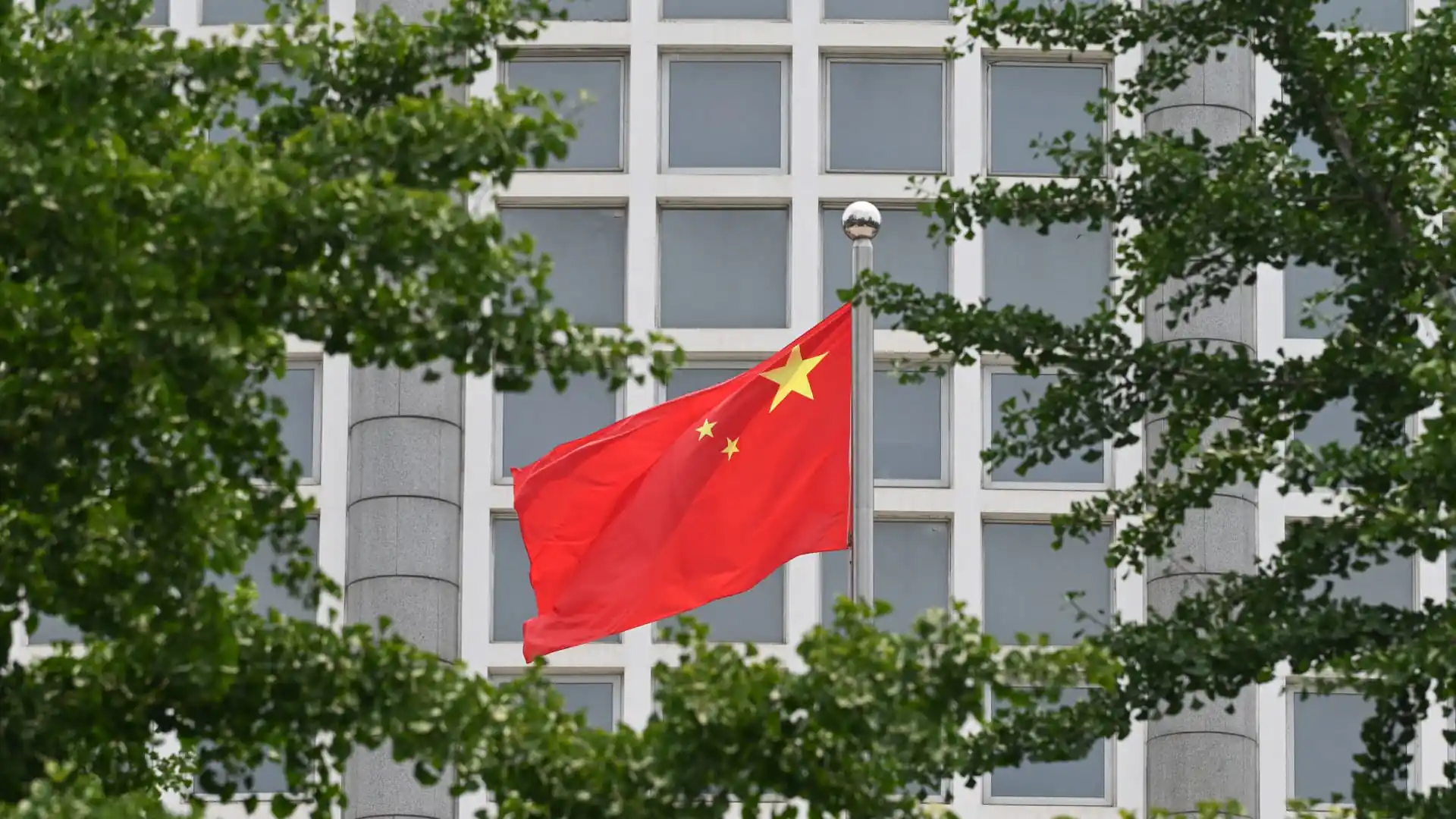[ad_1]
The Chinese national flag flies in front of the Ministry of Foreign Affairs in Beijing on July 26, 2023.
Greg Boulanger | Afp | Getty Images
Zheng Shanjie, chairman of China’s National Development and Reform Commission, pledged a series of actions to support the country’s economy at a highly anticipated news conference on Tuesday.
But he failed to announce major new stimulus plans, disappointing investors and weakening the recovery in mainland Chinese markets.
China will accelerate the issuance of special-purpose bonds to local governments to support regional economic growth, the senior NDRC official said.
Zheng said special ultra-long sovereign bonds, totaling 1 trillion yuan, have been fully deployed to finance local projects, and he promised that China will continue to issue special ultra-long Treasury bonds throughout the year. next.
The central government will release a 100 billion yuan investment plan for next year by the end of the month, ahead of schedule, a senior official added.
Zheng also promised that more measures would be taken to support the real estate market and boost domestic spending.
The NDRC chief was speaking at a press briefing with four other key officials from the country’s economic planning agency. The briefing took place as markets Mainland China is returning from Golden Week, a week-long holiday that began on September 30.
Chinese stocks reopened sharply higher Tuesday morning, extending the pre-holiday rally. Mainland China’s main indices – the Shanghai Composite Index, the blue-chip CSI 300 Index and the SZSE Component Index – jumped more than 10% in early trading.

Shanghai Composite Index
Last month, China’s top leaders expressed a sense of urgency over a long and painful economic slowdown that has cast doubt on the country’s ability to meet its annual growth target of “around 5 percent.”
Before the holiday, Chinese authorities had called for stronger fiscal and monetary policy support at a monthly meeting of top Communist Party officials and unveiled a series of stimulus measures aimed at halting the decline in commodity prices. real estate.
This recovery campaign comes as growth in the world’s second-largest economy has slowed after a disappointing recovery from Covid-19 lockdowns, weighed down by sluggish domestic demand and a prolonged slowdown in real estate.
In the first semester, China’s economy grew 5.0% compared to the previous year, meeting the central government’s target, while in the April-June quarter its GDP growth exceeded expectations and increased by 4.7%, marking its fastest growth slow since the first quarter of 2023.
China’s latest consumer price index rose 0.6% year-on-year in August, missing expectations of 0.7%, while the core CPI, which excludes food and beverage prices, energy, rose 0.3%, a slower rise for a second consecutive month.
Amid a spate of disappointing economic data, China’s industrial activity also contracted for the fifth consecutive month in September, with the official PMI reading at 49.8 in September. A PMI index above 50 indicates an expansion in activity, while an index below this level indicates a contraction.
Caixin’s PMI stood at 49.3 during the same period, the sharpest contraction in 14 months, driven by falling demand and a weakening labor market.
In March, Zheng told a high-level news conference that China would “continue to strengthen its macroeconomic policies.” This would involve coordination of fiscal, monetary, employment, industrial and regional policies, he said, as China continues to accelerate macroeconomic policy adjustment.
The NDRC chief also acknowledged that “there are still many difficulties and problems” in the process of achieving the country’s expected growth targets, according to CNBC’s translation of his Mandarin remarks.
This is breaking news. Please check back here for updates.

